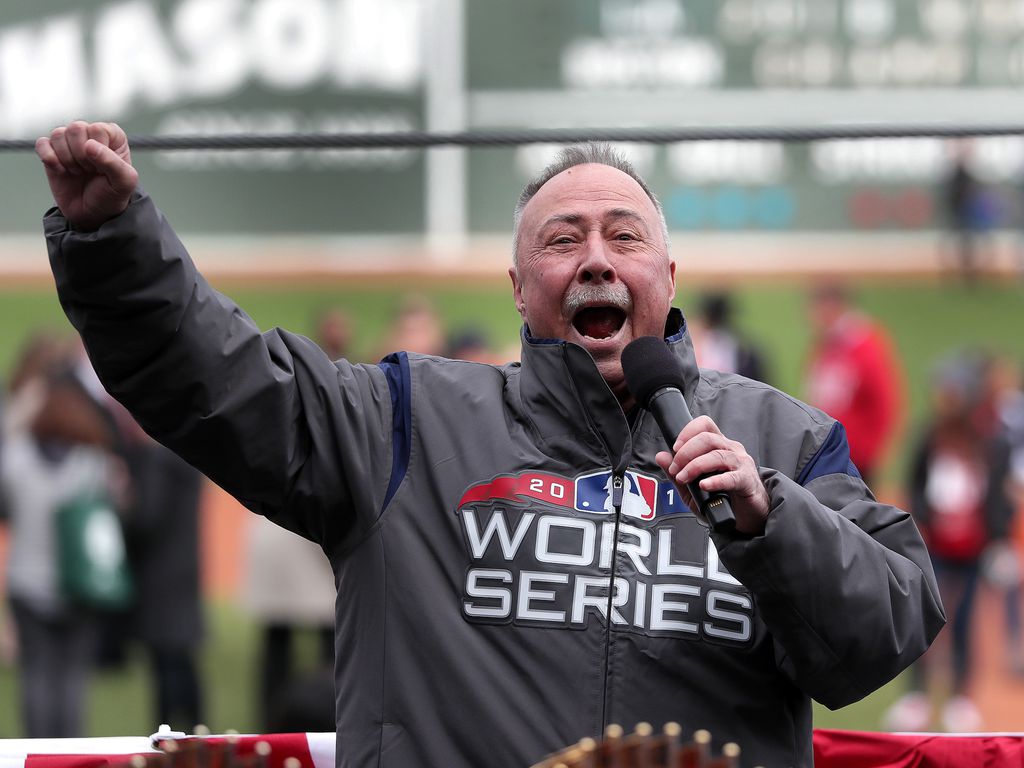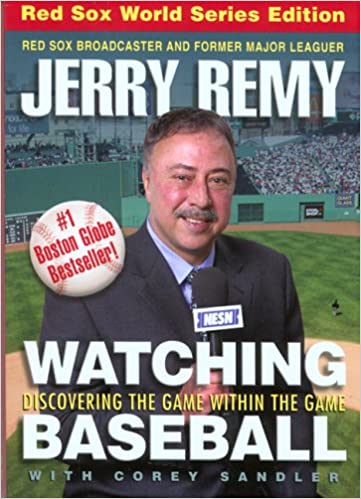An appreciation for Jerry Remy

Jerry Remy, former Red Sox player and broadcaster, died Saturday. He was a unique individual. Here’s what made him special to me and millions of other baseball fans.
As an avid watcher of Red Sox baseball, especially in the 1990s and 2000s, I heard a lot of Jerry Remy. He and his broadcast partners, first Sean McDonough and then, for a long time, Don Orsillo, narrated nearly every game.
Remy was a pretty good player during his playing days, including a stint as Red Sox second baseman from 1978 to 1984. Although he never hit much for power — he used to make jokes on air about how few home runs he hit — he had a fine batting average and was an All Star in 1978. And he had several clutch hits in the Red Sox’ final game, a one-game playoff against the Yankees for the American League pennant, which they lost.
We need more broadcasters like Remy
Baseball is game with exciting moments surrounded with long stretches of not much happening. It’s gotten worse lately, with all the pitching changes, long moments of contemplation between pitches, and strikeouts. But even in the heyday of Remy’s broadcast career, there was a need to fill time with something that would keep the audience interested.
This is where Remy excelled.
The first thing you’d notice was that he was completely genuine (or at least came off that way). You really felt like you were just sitting around chewing the fat with an old baseball player. There was rarely a false moment. And while Remy would certainly reminisce about his playing days, it was always humble, and it was never about him. You’d never know that he was an All Star, because he just sounded like a regular guy.
But what really made the broadcasts interesting was that, if you just paid attention for a moment, you’d learn an awful lot about baseball. And I’m talking deep, subtle stuff that really enhanced your appreciation of what you were watching. That play you just saw? It really happened because the right fielder had positioned himself perfectly based on who was at bat, who was pitching, and what pitch the pitcher was throwing. The guy about to steal second isn’t just hoping to get a free base, he’s also making this particular pitcher annoyed and disrupting his rhythm. Here’s everything the manager has to consider when deciding whether to put in a new pitcher right now, including who’s on the other manager’s bench and whether they’re hot right now.
Broadcasts these days — especially national broadcasts — include far sexier graphics and prepackaged descriptions of what’s going on with baseball strategy, dumbed way down for audiences presumed to be distracted idiots. But Remy kept your interest with these recollections, seemingly completely off the top of his head, and you never felt talked down to. Instead, you felt like he was saying, “If you’re interested in baseball, here’s a little bit more about what’s actually going on, so the next time you watch or go to a game, you’ll understand things in a little more sophisticated way.”
Red Sox fans are some of the most knowledgeable fans in baseball. And I think the reason for that is, they’ve gone to the baseball school of Jerry Remy.

A great way to learn more about this stuff is from Remy’s book, Watching Baseball: Discovering the Game Within the Game. While it was first published in 2004, it’s still a nice compilation of what you can see and learn from when you watch a game.
The other thing that Remy did was laugh. He’d laugh at the silly stuff players did, and the fans, too. While baseball is serious to Red Sox fans, it’s a game, and people watch to be entertained. So sometimes, encouraged by his broadcast partners, he’d go off on some weird and silly tangent and you’d just find yourself laughing, too.
When I watch national broadcasts, I sometimes wonder if the broadcasters know there is a game going on. We’re watching the TV, and the broadcasters are talking about themselves or some day they had in 1988 that has nothing to do with anything. It’s obvious they’re filling time . . . badly.
But with Remy, game after game, season after season, it was all about baseball. He loved baseball. He loved the players. He loved the fans. He loved the mascot. About the only people he didn’t seem to love were the umpires.
As Remy struggled with lung cancer for the last several years, he reminded me of a player who, hobbled by injuries, still believes he can regain his playing form. Remy knew he belonged in the broadcast booth, and he was going to get there one way or another, because we needed him.
Now he won’t be back. But other broadcasters really need to pay attention to what he brought to the game. It’s worth it to try to be genuine, to be committed to telling the truth about what’s going on, to making us smarter, and to making us chuckle from time to time.
Those other guys can do better. But no matter what they do, they won’t be the Remdawg. Because there was only one Jerry Remy, and now he’s gone.
Thank you, Josh, for such a lovely appreciation of Jerry Remy. He taught me just about everything I know about baseball, and I’ve waited desperately for him to return to the booth so I could learn more — and be entertained as only Jerry did. I long dreamed of sitting down with him and watching a game, so he could explain it all to me and answer my questions. So now that I’m in my seventies and finally have the confidence to ask, he’s gone.
My sister and I were talking about Jerry Remy yesterday, and she wistfully mentioned that Red Sox baseball will never be the same. We both had tears in our eyes.